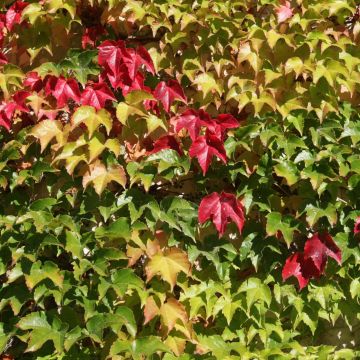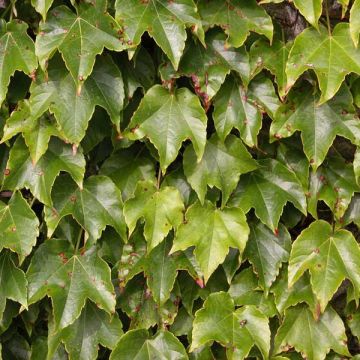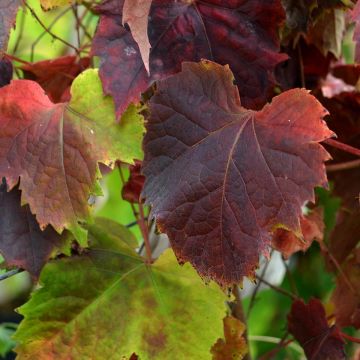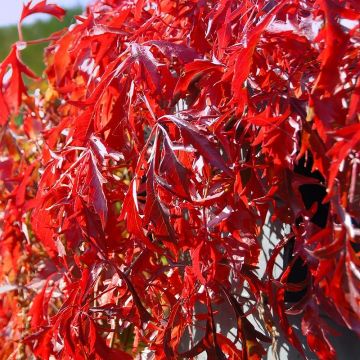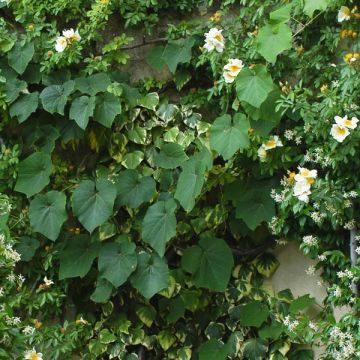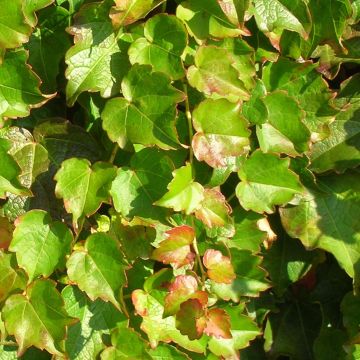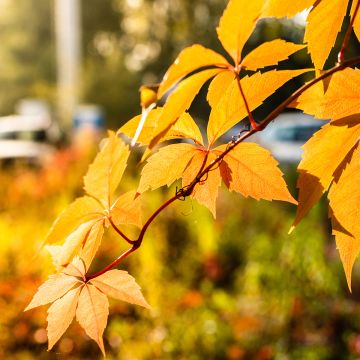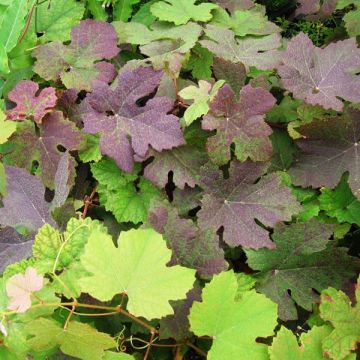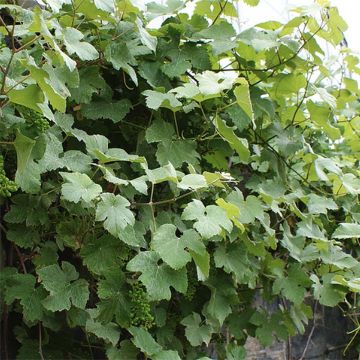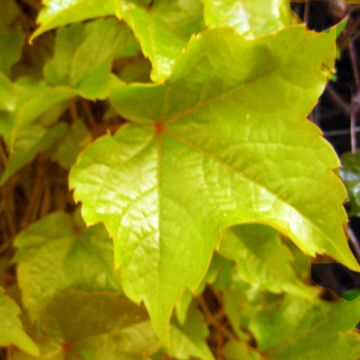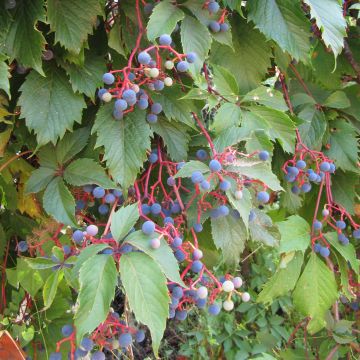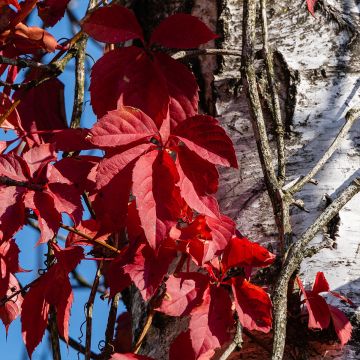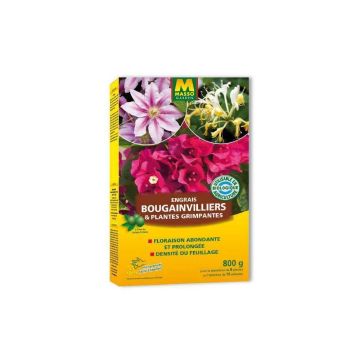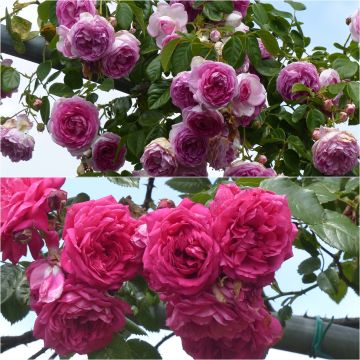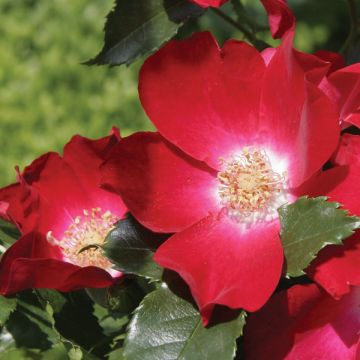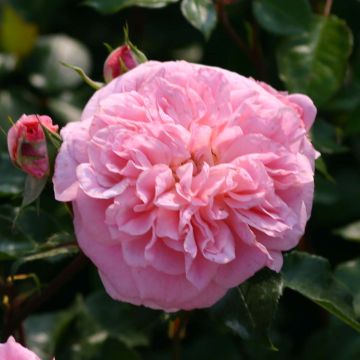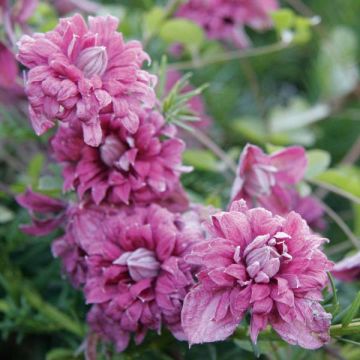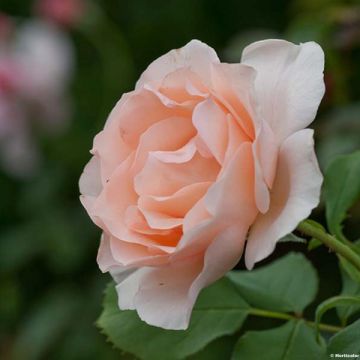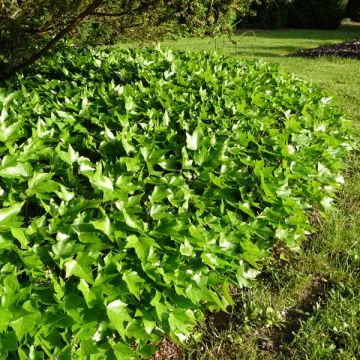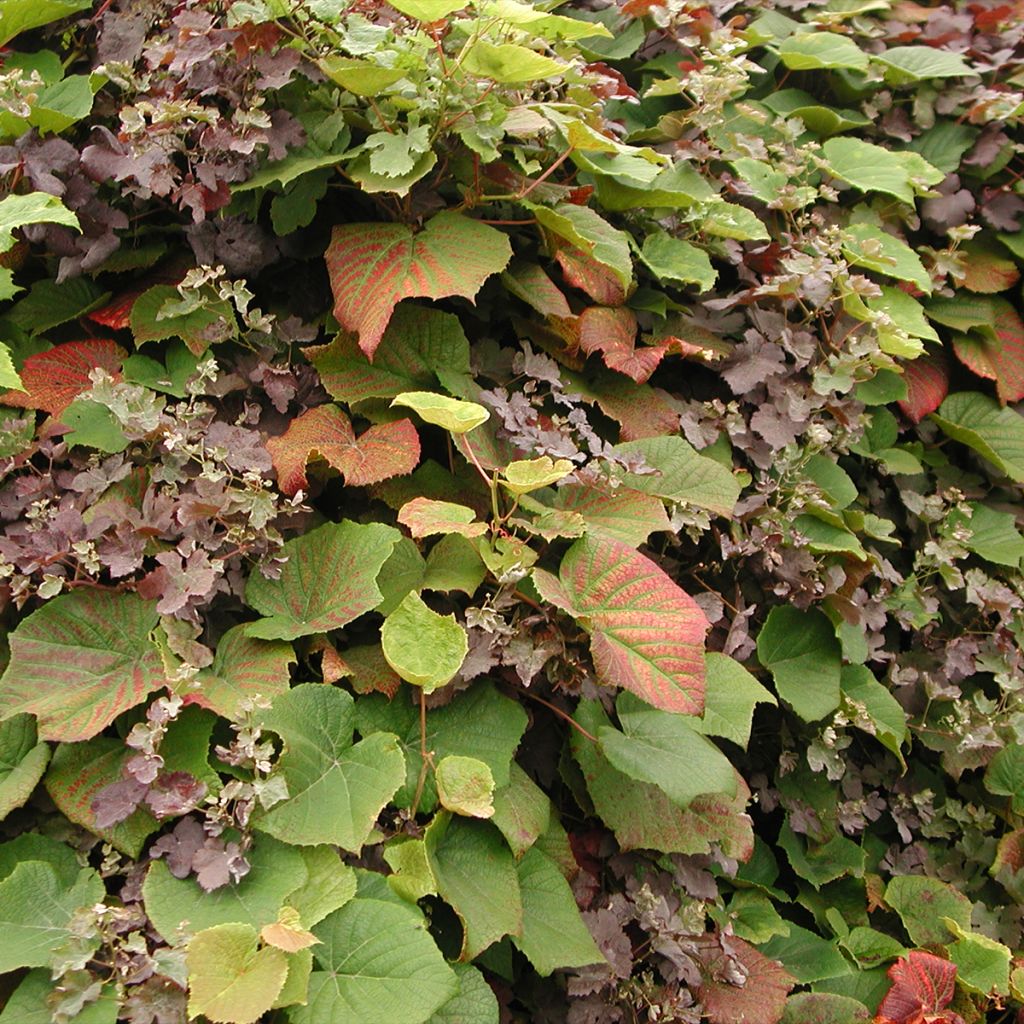

Vitis coignetiae Sunning Dale
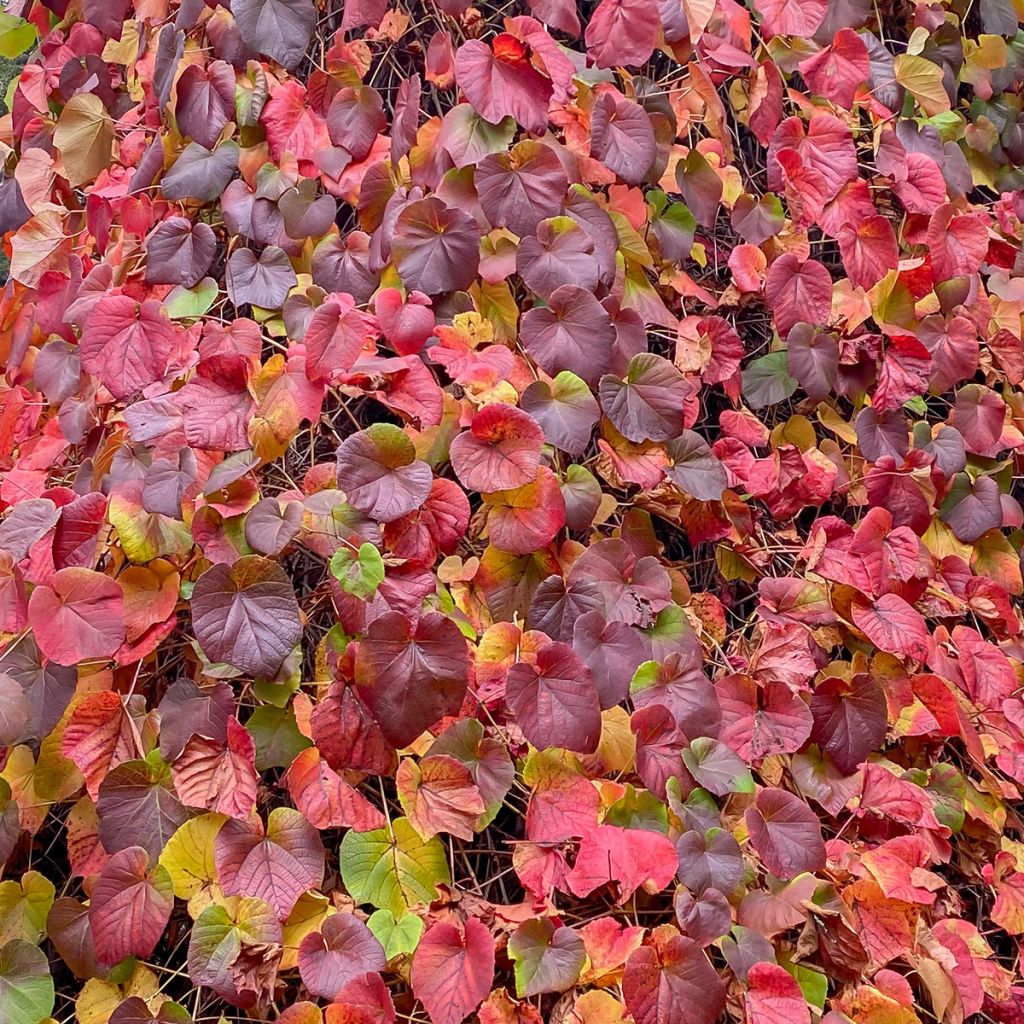

Vitis coignetiae Sunning Dale
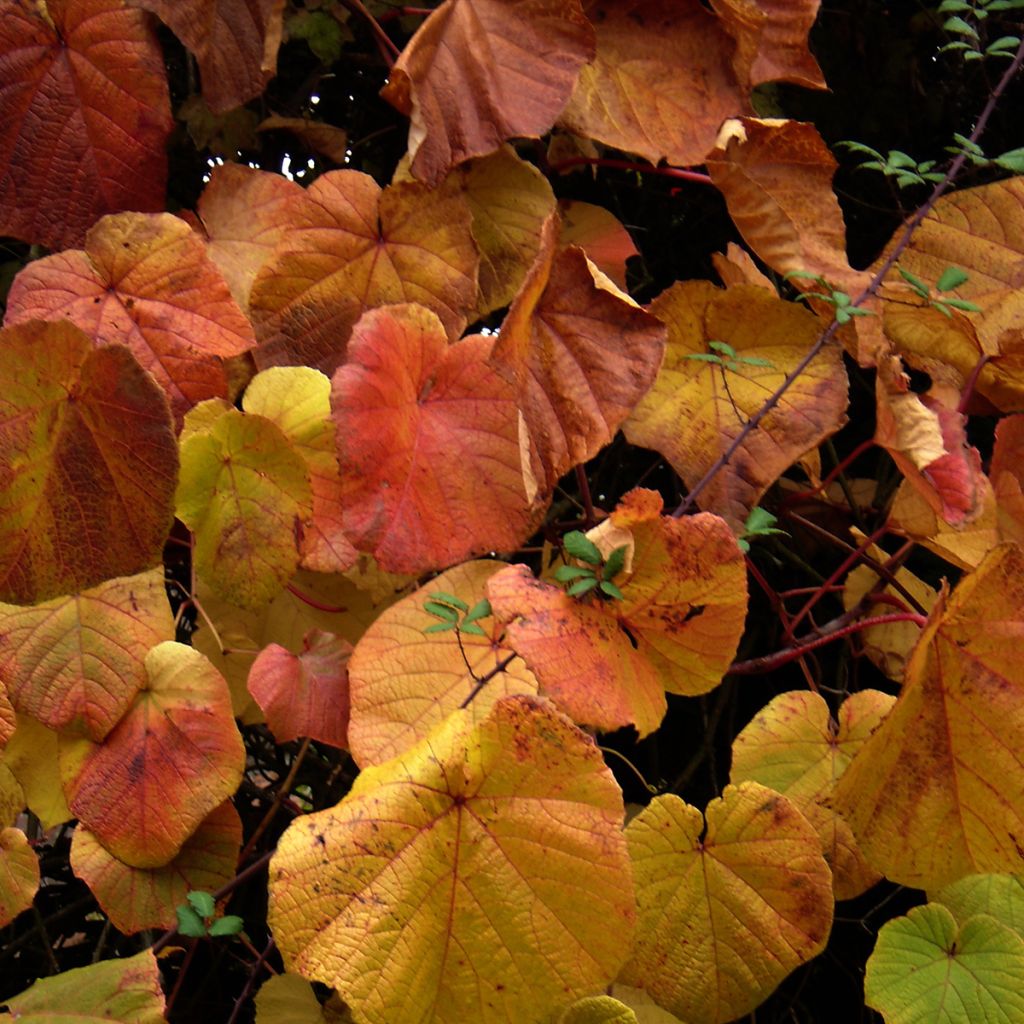

Vitis coignetiae Sunning Dale
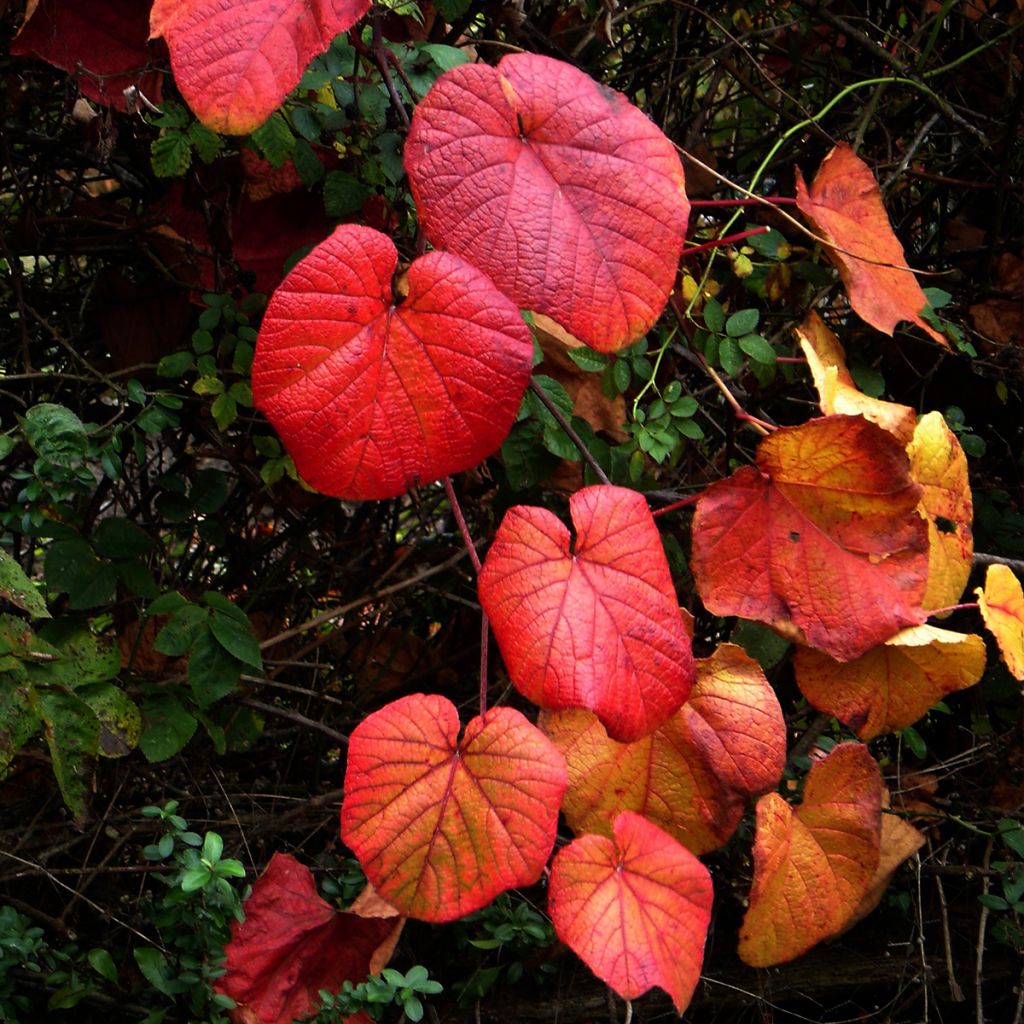

Vitis coignetiae Sunning Dale
Vitis coignetiae Sunning Dale
Vitis coignetiae Sunning Dale
Crimson Glory Vine
Why not try an alternative variety in stock?
View all →This plant carries a 6 months recovery warranty
More information
We guarantee the quality of our plants for a full growing cycle, and will replace at our expense any plant that fails to recover under normal climatic and planting conditions.
Oversize package: home delivery by special carrier from €6.90 per order..
Express home delivery from €8.90.
Delivery to Corse prohibited: UE law prohibits the import of this plant from mainland France to Corse as part of the fight against Xylella fastidiosa. Please accept our sincere apologies.
More information
Does this plant fit my garden?
Set up your Plantfit profile →
Description
The Vitis coignetiae 'Sunning Dale' is a Coignet Vine that has been selected for its even more vibrant and brilliant autumn colours than those of the species. The plant displays the same large leaves that are more or less round, sometimes slightly trilobed. Tinged with bronze when they appear in spring, these leaves turn a beautiful bright green during the season before blazing with scarlet red in autumn, creating an unforgettable spectacle on a wall or in a tree where it has climbed. Fast-growing and cold-resistant, this climbing vine likes well-drained soils, not too dry but moist, even limestone. Give it a sunny or semi-shady exposure.
The Coignet Vine belongs to the Vitaceae family, known mainly for hosting wine grapes, as well as many ornamental vines, such as the "tribe" of Cissus (Parthenocissus, Rhoicissus, Ampelocissus...), Ampelosis or the giant vine Tetrastigma. Among the many cultivated ornamental vine species, this species is more oriental, originating from Asia, northern Japan, Korea, or the Russian island of Sakhalin. It naturally grows in cold and humid regions, at high altitudes, which makes it very hardy, and it is generally found at the edge of forests. This ornamental vine produces large vigorous stems with tendrils at the axil of the leaves that wrap around and cling to any wood. As an adult, it can reach a height of 10 to 15 metres (33 to 49 feet) depending on the conditions. In Asia, the grapes it produces are used to make a slightly bitter-tasting wine.
'Sunning Dale' is a recent cultivation (2007-2008) by Sunningdale Nurseries based in the United Kingdom (in Cornwall, near Plymouth). This variety is an improvement of the botanical species, differing mainly in the appearance of its leaves. These have a bronze colour when they emerge in spring and unfold to take on the characteristic shape of the species, which is almost round, barely lobed, 20 to 30 cm (8 to 12in) in diameter, but with a slightly more toothed edge in 'Sunning Dale'. They then turn a bright green colour. The foliage forms a dense blanket and the areas it covers can be impressive as this vine can grow up to 10 metres (33 feet) in height and width! The highlight of the show is in autumn when, with the onset of the first cold, they blaze with a scarlet red that catches the eye from dozens of metres away.
A wall covered with this ornamental vine creates an unforgettable spectacle, just like a deciduous tree that it has climbed. Its tendrils need support to cling to, a sturdy trellis or taut wires spaced regularly against a wall will create breathtaking scenes in autumn. Keep in mind that this vine has significant growth and therefore requires space, even though it tolerates pruning very well, and also that when the leaves fall, you will have impressive volumes to compost or dispose of! In a garden inspired by exoticism, this Coignet Vine 'Sunning Dale' will weave its way through a large pergola or be neatly trained against the wall of a house. To create spectacular scenes, associate it with other giant climbers like the 'Kiftsgate' Rose, whose simple white flowers in July-August will enliven the mass of foliage. The Celastrus 'Autumn Revolution' will also be a good companion, vigorous enough not to be overwhelmed and quite decorative with its orange fruits from late summer to October.
Report an error about the product description
Vitis coignetiae Sunning Dale in pictures
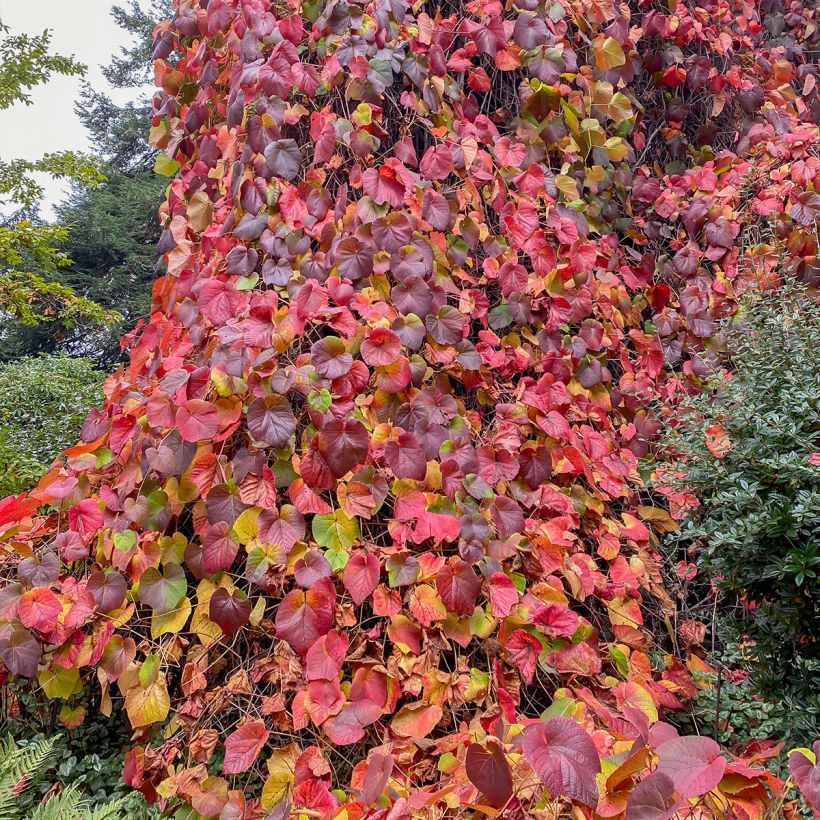

Plant habit
Flowering
Foliage
Botanical data
Vitis
coignetiae
Sunning Dale
Vitaceae
Crimson Glory Vine
Cultivar or hybrid
Other Parthenocissus - Virginia Creeper
Planting and care
The Vitis coignetiae 'Sunning Dale' is planted in a soil preferably rich in humus and well-drained, even limestone, rather moist, which you will have enriched with an organic fertiliser. Choose a semi-shade or sunny exposure. It can withstand temperatures as low as -20 °C. Prune it vigorously in February by cutting it back severely. Stake or train to support and guide the branches.
Planting period
Intended location
Care
This item has not been reviewed yet - be the first to leave a review about it.
Foolproof climbers
Haven't found what you were looking for?
Hardiness is the lowest winter temperature a plant can endure without suffering serious damage or even dying. However, hardiness is affected by location (a sheltered area, such as a patio), protection (winter cover) and soil type (hardiness is improved by well-drained soil).

Photo Sharing Terms & Conditions
In order to encourage gardeners to interact and share their experiences, Promesse de fleurs offers various media enabling content to be uploaded onto its Site - in particular via the ‘Photo sharing’ module.
The User agrees to refrain from:
- Posting any content that is illegal, prejudicial, insulting, racist, inciteful to hatred, revisionist, contrary to public decency, that infringes on privacy or on the privacy rights of third parties, in particular the publicity rights of persons and goods, intellectual property rights, or the right to privacy.
- Submitting content on behalf of a third party;
- Impersonate the identity of a third party and/or publish any personal information about a third party;
In general, the User undertakes to refrain from any unethical behaviour.
All Content (in particular text, comments, files, images, photos, videos, creative works, etc.), which may be subject to property or intellectual property rights, image or other private rights, shall remain the property of the User, subject to the limited rights granted by the terms of the licence granted by Promesse de fleurs as stated below. Users are at liberty to publish or not to publish such Content on the Site, notably via the ‘Photo Sharing’ facility, and accept that this Content shall be made public and freely accessible, notably on the Internet.
Users further acknowledge, undertake to have ,and guarantee that they hold all necessary rights and permissions to publish such material on the Site, in particular with regard to the legislation in force pertaining to any privacy, property, intellectual property, image, or contractual rights, or rights of any other nature. By publishing such Content on the Site, Users acknowledge accepting full liability as publishers of the Content within the meaning of the law, and grant Promesse de fleurs, free of charge, an inclusive, worldwide licence for the said Content for the entire duration of its publication, including all reproduction, representation, up/downloading, displaying, performing, transmission, and storage rights.
Users also grant permission for their name to be linked to the Content and accept that this link may not always be made available.
By engaging in posting material, Users consent to their Content becoming automatically accessible on the Internet, in particular on other sites and/or blogs and/or web pages of the Promesse de fleurs site, including in particular social pages and the Promesse de fleurs catalogue.
Users may secure the removal of entrusted content free of charge by issuing a simple request via our contact form.
The flowering period indicated on our website applies to countries and regions located in USDA zone 8 (France, the United Kingdom, Ireland, the Netherlands, etc.)
It will vary according to where you live:
- In zones 9 to 10 (Italy, Spain, Greece, etc.), flowering will occur about 2 to 4 weeks earlier.
- In zones 6 to 7 (Germany, Poland, Slovenia, and lower mountainous regions), flowering will be delayed by 2 to 3 weeks.
- In zone 5 (Central Europe, Scandinavia), blooming will be delayed by 3 to 5 weeks.
In temperate climates, pruning of spring-flowering shrubs (forsythia, spireas, etc.) should be done just after flowering.
Pruning of summer-flowering shrubs (Indian Lilac, Perovskia, etc.) can be done in winter or spring.
In cold regions as well as with frost-sensitive plants, avoid pruning too early when severe frosts may still occur.
The planting period indicated on our website applies to countries and regions located in USDA zone 8 (France, United Kingdom, Ireland, Netherlands).
It will vary according to where you live:
- In Mediterranean zones (Marseille, Madrid, Milan, etc.), autumn and winter are the best planting periods.
- In continental zones (Strasbourg, Munich, Vienna, etc.), delay planting by 2 to 3 weeks in spring and bring it forward by 2 to 4 weeks in autumn.
- In mountainous regions (the Alps, Pyrenees, Carpathians, etc.), it is best to plant in late spring (May-June) or late summer (August-September).
The harvesting period indicated on our website applies to countries and regions in USDA zone 8 (France, England, Ireland, the Netherlands).
In colder areas (Scandinavia, Poland, Austria...) fruit and vegetable harvests are likely to be delayed by 3-4 weeks.
In warmer areas (Italy, Spain, Greece, etc.), harvesting will probably take place earlier, depending on weather conditions.
The sowing periods indicated on our website apply to countries and regions within USDA Zone 8 (France, UK, Ireland, Netherlands).
In colder areas (Scandinavia, Poland, Austria...), delay any outdoor sowing by 3-4 weeks, or sow under glass.
In warmer climes (Italy, Spain, Greece, etc.), bring outdoor sowing forward by a few weeks.


































